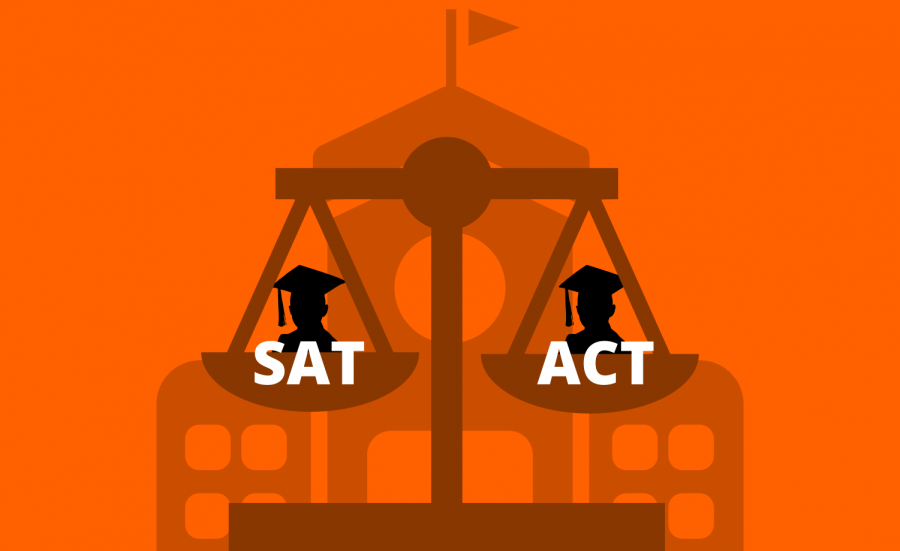Should test scores be weighed as much in college admissions?
Almost 1,700 schools in the country are not making the SAT or ACT tests obligatory anymore — thus, an ongoing debate has emerged over whether colleges should weigh test scores as much as they used to be.
Whether it be the SAT or ACT, these exams used to be a valued indicator of an applicant’s academic strength that students would stress over for the majority of their high school career.
Every year, high schoolers are studying and preparing for the college aptitude tests. Whether it be the SAT or ACT, these exams used to be a valued indicator of an applicant’s academic strength that students would stress over for the majority of their high school career.
It wasn’t until recently that things began to change, with colleges gradually announcing that they would no longer require standardized tests for the class of 2025. Currently, almost 1,700 schools in the country are not making these tests obligatory anymore — thus, an ongoing debate has emerged over whether colleges should weigh test scores as much as they used to be.
“I don’t think colleges should focus all that much on test scores, because it doesn’t really tell them anything about the student,” Hills junior Alan Zhang expressed. “The important parts about a student are their extracurriculars and their personalities, and you can’t get any of that from an ACT or a SAT. All those tests really show is how well a student can repeat a formula or an essay template.”
While these tests serve the purpose of putting students on an even Plainfield because every high school has a different way of educating their students— like Zhang said— it’s still the same formula every time. When students are tutored for the SAT or the ACT, they aren’t learning about the actual problems themselves but the strategies on how to take the test; instead of not absorbing information, they are mastering ways to apply certain skills that aren’t applicable in the real world.
The aptitude tests were formally a huge aspect of determining whether a student should get into a specific college or university, but now schools have been focusing more on how the student stands out against other applicants. A lot of schools that don’t require scores will still accept these tests, but they emphasize the idea that it is better to not submit test scores than to submit ones that are not on the average or above-average range of students who are applying to that specific school.
“I don’t think that it shows or proves whether or not you’re a good student or that you care about learning,” Hills junior Maggie Chua answered. “And I don’t think it’s a true indicator of how successful a person is. If you go and get a job, no one’s going to care about these things. In general, they shouldn’t be held as highly because these test skills aren’t as useful in real life.”
Chua and Zhang both highlight the question of how these tests are to be applied when a student enters the real world. This makes sense considering that unless someone is working in the aptitude testing field or is aiming to become a high school teacher, these strategies and tricks for learning how to take the SAT or ACT won’t be very important going into adulthood.
Some may argue that these tests should be featured in the college admission process, but it seems like that belief is slowly dwindling in both students and many schools around the country continuing forward.

Hills senior Darcy Bergstein is looking forward to her second year as a member of the Trailblazer. Before she became an Arts and Entertainment Editor, Bergstein wrote articles for the section as a staff writer. She is excited to edit for Arts and Entertainment alongside Kaitlyn Verde and write more articles in her final year at Hills.
Fun fact: Bergstein's favorite T.V. shows are "Breaking Bad" and "Mad Men."












































